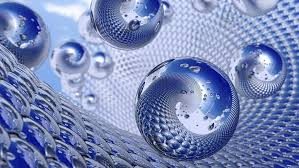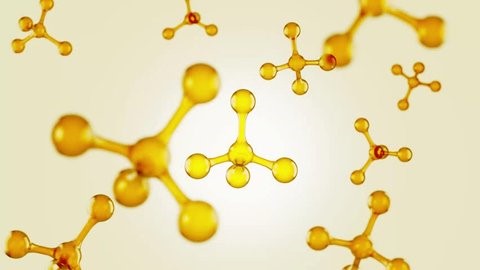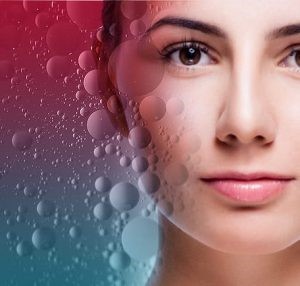
Introduction
Nanotechnology has revolutionised the beauty industry, fundamentally changing our perception and usage of cosmetics. Nanotechnology, the manipulation of materials at the nanoscale (one billionth of a metre), has been incorporated into the cosmetics business, offering remarkable progress in product efficacy, safety, and overall performance. It is exerting significant influence in the cosmetics industry, illuminating novel uses that are revolutionising the notion of beauty.
What is nanotechnology?
Nanotechnology is a multidisciplinary field that involves manipulating and controlling materials at the nanoscale, which is on the order of one billionth of a meter. It encompasses the understanding of the fundamental physics, chemistry, biology and technology of nanometre-scale objects At this scale, the properties of materials can differ significantly from their macroscopic counterparts, leading to unique and often enhanced characteristics. Nanotechnology involves subatomic matter, as well as specific knowledge from scientific disciplines such as organic chemistry, molecular biology, semiconductors, microfabrication, and surface science, among others. It has a wide range of applications across various industries, including medicine, electronics, materials science, and, notably, the cosmetic industry.

Dr Mazuwin has 17 years experience in both academia and industry mainly from the top MNC’s like GE, Shell and British Petroleum in the area of HRM and Strategic Management. In her current role as an academician, her main focus is in research and publications and mainly on marginalized group especially PWD on issues concerning employability with PWD’s, and the human right to adequate legislative structure which are key elements of Malaysia’s political agenda. Her full profile can be accessed from https://business.utm.my/mazuwin-intro/

Nanotechnology and the cosmetic industry
 In the cosmetics sector, nanotechnology refers to the application of nanomaterials, in particular nanoparticles, with the goal of enhancing the formulation, performance, and delivery of cosmetic products. It is possible to create nanoparticles from a variety of materials, including metals, lipids, polymers, and ceramics. The use of those minuscule structures that facilitate improved active ingredient distribution and absorption, is the fundamental component of nanotechnology in cosmetics. These tiny particles, typically measuring between 1 and 100 nanometers, possess distinctive physical and chemical characteristics that can greatly enhance the effectiveness of cosmetic products. Cosmetic manufacturers use nanoscale versions of ingredients to provide better UV protection, deeper skin penetration, long-lasting effects, increased colour and finish quality.
In the cosmetics sector, nanotechnology refers to the application of nanomaterials, in particular nanoparticles, with the goal of enhancing the formulation, performance, and delivery of cosmetic products. It is possible to create nanoparticles from a variety of materials, including metals, lipids, polymers, and ceramics. The use of those minuscule structures that facilitate improved active ingredient distribution and absorption, is the fundamental component of nanotechnology in cosmetics. These tiny particles, typically measuring between 1 and 100 nanometers, possess distinctive physical and chemical characteristics that can greatly enhance the effectiveness of cosmetic products. Cosmetic manufacturers use nanoscale versions of ingredients to provide better UV protection, deeper skin penetration, long-lasting effects, increased colour and finish quality.
Benefits of nanotechnology
An important advantage of incorporating nanotechnology in cosmetics is its ability to enhance the skin’s uptake of active substances. The skin barrier can pose a challenge for conventional formulations to effectively penetrate, hence restricting the efficacy of some drugs. Nanomaterials-based cosmetics show some unique advantages compared to micro-scale cosmetics. The use of nanomaterials by the cosmetic industry aims for long-lasting effects and increased stability. The high surface area of nanomaterials allows for more efficient transport of the ingredients through the skin. Nanoparticles’ tiny size enables enhanced skin penetration, facilitating the delivery of vital components to deeper layers and exerting a significant influence
a) Improved Formulations and Stability
The stability of cosmetic formulations has also been addressed by nanotechnology. Some substances are extremely vulnerable to the effects of light and air on their active components, including vitamins, antioxidants, and peptides. The stability and longevity of cosmetics can be greatly increased by encasing these components in nanocarriers. In addition to reducing the need for preservatives, this process guarantees that consumers receive products with optimal efficacy, making for a more natural and skin-friendly cosmetic experience.
b) Enhanced Protection from Sunscreen

The incorporation of nanotechnology has brought about a significant paradigm shift in the field of sunscreen technology. Classical sunscreens frequently impart a white sheen to the skin as a result of the substantial particulate size of their active components. Nanoparticles, specifically titanium dioxide and zinc oxide, enable the development of transparent formulations that offer broad-spectrum UV protection while avoiding the undesired whitening consequence. This groundbreaking development has significantly transformed the way in which consumers perceive and employ sunscreens, rendering them more aesthetically pleasing and intuitive.
c) Targeted Delivery Mechanisms
A number of cosmetic issues may now be addressed with pinpoint accuracy thanks to nanotechnology-enabled targeted delivery methods. Encapsulating active chemicals and transporting them precisely to the desired layers of the epidermis is the competence of nanocarriers like liposomes and nano capsules. Hygiene solutions are able to work their magic by using this strategy, which targets particular areas for maximum effect.
Nanotechnology incorporated in the cosmetic products

Nanotechnology has been increasingly used in the cosmetics industry to enhance product performance, delivery, and efficacy. Here are a few examples of cosmetic products that incorporate nanotechnology:
a) Nanoemulsions in Sunscreens:
Nano-sized particles of titanium dioxide or zinc oxide are used in sunscreens to create transparent formulations. This helps in avoiding the white cast often associated with traditional sunscreens.
b) Nanoparticles in Anti-Aging Creams:
Some anti-aging creams contain nanoparticles of active ingredients such as retinol or peptides. These tiny particles can penetrate the skin more effectively, potentially leading to improved skin texture and reduced fine lines.
c) Nanoencapsulation in Skincare Serums:
Nanoencapsulation involves enclosing active ingredients in nanoscale carriers. This technology is used in serums to protect sensitive ingredients, enhance their stability, and ensure controlled release on the skin.
d) Nanoparticles in Foundation and BB Creams
Nanoparticles are used in foundations and BB creams to create lightweight formulations that offer smooth coverage. The smaller particle size allows for a more even application and a natural finish
e) Nanostructured Hair Care Products:
Nanotechnology is also applied in hair care products. Nano-sized particles of ingredients like keratin or other conditioning agents can penetrate the hair shaft, providing improved strength and moisture retention.
f) Nanoparticles in Nail Polishes:
Nanoparticles can be used in nail polishes to enhance durability and adhesion. They can also contribute to a smoother application and a more even finish.
Conclusion
The cosmetics business has been unquestionably revolutionized by nanotechnology, providing a wide range of advantages such as increased delivery of active chemicals, enhanced product stability, and focused solutions for skincare. The integration of nanotechnology in cosmetics is a notable progress, providing the possibility for a new era of skincare products that are not only more effective but also tailored to individual needs. Nanotechnology incorporation in cosmetic formulation is considered as the hottest and emerging technology available. Cosmetic manufacturers use nanoscale size ingredients to provide better UV protection, deeper skin penetration, long-lasting effects, increased colour, finish quality, and many more .With the advancement of research and development in this domain, we may expect further remarkable advancements that will redefine the limits of beauty and wellness. It is crucial to note that although nanotechnology in cosmetics has potential advantages, there are ongoing deliberations over the safety and enduring impacts of nanoparticles on human health. Regulatory authorities in different nations are endeavouring to create protocols and guarantee the safety of nanotechnology in cosmetic items. . Nanotechnology has revolutionized cosmetic research, resulting in increased worldwide consumer demand. Furthermore, the global growth in the market share of medicines and cosmetics is largely attributable to the amalgamation of nanoparticles.
